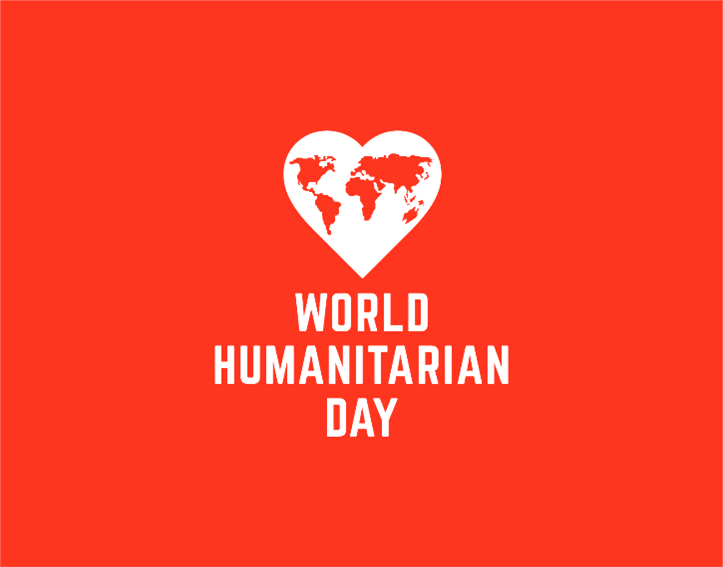World Humanitarian Day: Aid workers need our support
On August 19, 2024, World Humanitarian Day was celebrated to honour humanitarian workers and promote awareness of humanitarian efforts globally. In 2008, the United Nations (UN) General Assembly designated August 19 of every year to commemorate the plight of humanitarian workers following the August 19, 2003 bombing of the United Nations (UN) headquarters in Baghdad, […]

world humanitarian day
On August 19, 2024, World Humanitarian Day was celebrated to honour humanitarian workers and promote awareness of humanitarian efforts globally. In 2008, the United Nations (UN) General Assembly designated August 19 of every year to commemorate the plight of humanitarian workers following the August 19, 2003 bombing of the United Nations (UN) headquarters in Baghdad, which killed 22 humanitarian workers, including Sérgio Vieira de Mello, the UN’s High Commissioner for Human Rights.
The day provides an opportunity to celebrate the indispensable and tireless life-saving efforts of humanitarian workers worldwide who endure attacks while displaying bravery and commitment. They provide life-saving responses for so many of those affected by crises – war, natural disasters, and other emergencies.
Their tasks are daunting and risky. They are thrust into taking care of the displaced population with the resulting precarious living conditions.
As the UN Secretary-General said in his recent report, 2023 was the deadliest year on record for the global humanitarian community, with a total of 280 aid workers killed in 33 countries, 56 of them in Sudan.
The high number represents a 137 per cent increase compared to 2022 when 118 aid workers were killed. 2024 may even be deadlier because as at August 7, 172 aid workers had been killed, according to the Aid Worker Security Database. Since October 2023, over 289 aid workers had been killed in Gaza alone, along with 885 health workers.
The Secretary-General’s 2024 report also said that in 2023 alone, in North-East Nigeria, four aid workers were killed, six kidnapped, and eight wounded due to terror attacks while over 4,500 civilians were killed. The Aid Worker Security Database (AWSD) also shows that between 2011 and 2024, 179 aid workers have suffered attacks in Nigeria, ranging from kidnapping to shooting, bodily assault, explosions, and aerial bombardments.
The UN Office for the Coordination of Humanitarian Affairs (OCHA) added that over 7.9 million people faced “Severe protection concerns, extreme deprivation beyond their existing poverty levels, and daily threats to their well-being.”
According to the latest Cadre Harmonisé projections, 4.8 million people in the North-East could struggle to find enough food during the lean season (June-August 2024) without humanitarian assistance, which is 14% higher than a year ago.
As the world celebrated this year’s Humanitarian Day with the theme #ActForHumanity, Daily Trust salutes the dedication and courage of humanitarian workers across the globe who are driven by selflessness to solve challenges in crisis-ridden zones. We also pay tribute to those who lost their lives in pursuit of this noble objective. They all represent the best of humanity.
They are always the first responders when disasters strike providing health care and education; food and water; shelter and protection to the most vulnerable. They are the first to ease the suffering of those in humanitarian crises.
We also call on the UN, African Union (AU), regional and national governments to address the alarming rise in attacks against humanitarian workers and the enforcement of International Humanitarian Law (IHL). It is time for the global community to rise and defend international humanitarian law and the humanitarian principles enshrined in its Humanitarian Strategy adopted in December 2023 at the National Humanitarian Conference.
Therefore, we demand immediate, safe, and unhindered access for humanitarian workers across conflict lines, so they can reach those who need help the most without interference. All violators must face the consequences for breaking international laws meant to protect aid workers and civilians in conflict zones. None of the perpetrators should escape justice in order to ensure greater respect for the rules of war and accountability.
More importantly, the crisis precipitating the humanitarian challenges are most times unnecessary and could be resolved through dialogue or political action. It is time for humanity, especially all Nigerians to embrace peace. All issues should be resolved mutually instead of the instincts to go for weapons of war. Not much can be done to stop most humanitarian crises arising from natural causes. But those political, social and economic differences can and must be pursued.
But ultimately, it is imperative that Nigerians avoid all activities that could trigger a humanitarian crisis. That way, the job of humanitarian workers would be easier. This is the greatest tribute for all their worthy contributions to humanity.
Again, Daily Trust calls on the UN, AU and regional groups to return to the days of vibrant diplomacy to douse tensions and prevent conflicts before they escalate to wars. Also, all political leaders should ensure good governance and stop the mismanagement of fault lines to ensure that factors that precipitate wars are nipped in the bud. That way, the deployment of humanitarian workers and putting them in harm’s way will be unnecessary.
